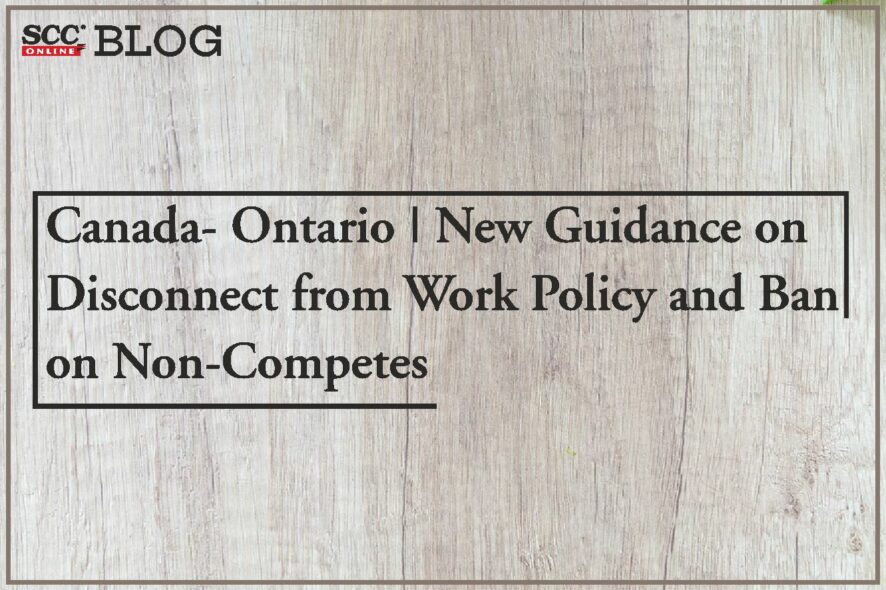On February 18, 2022, Ontario’s Your guide to the Employment Standards Act (Guide) was updated to include two new chapters relating to Disconnect from Work Policy and Ban on Non-Competes.
Key Highlights:
Written policy on disconnecting from work
- Employers with 25 or more employees are required to ensure that it has a written policy “with respect to disconnecting from work”.
Note: “Disconnecting from work” is defined to mean: “not engaging in work-related communications, including emails, telephone calls, video calls or the sending or reviewing of other messages, so as to be free from the performance of work”. The definition is inclusive, and not exhaustive, so other elements may be appropriate for inclusion in the employer’s policy.
- The Working for Workers Act does not give employees any additional rights to disconnect from work, and it does not require the employers to allow their employees to disconnect from work further than the ESA already requires. Keep in mind that employers in Ontario must abide by daily and weekly maximum hours of work, eating periods, vacation time, and public holidays, during which an employee must be free from work.
- The written policy on disconnecting from work does not strictly speaking need to give employees more time free from work. However, it should state any additional time that employees are permitted to disconnect, and the employer’s expectations regarding work-related communications.
NON-COMPETE AGREEMENTS
- Effective October 25, 2021 employers are prohibited from entering into employment contracts or other agreements with an employee that include a non-compete agreement.
Note: A non-compete agreement is defined as an agreement, or any part of an agreement, between an employer and employee that prohibits the employee from engaging in any business, work, occupation, profession, project or other activity that is in competition with the employer’s business, after the employment relationship between the employee and the employer ends.
- Non-Compete agreements, even those are that limited temporally and geographically, are now prohibited – subject to certain exceptions – and cannot be entered into at any time before, during, or after employment.
- An agreement, or part of an agreement, may be considered a non-compete agreement whether or not it is time-limited or geographically restricted.
- Entering into non-compete agreements is prohibited before the employment relationship begins, during the employment relationship and after it ends.
-
The ESA leaves room for two exceptions to the prohibition on non-compete agreements. The first is a rather technical exception where the owner of a business sells to a purchaser, and then becomes an employee. A purchase and sale agreement can include that the seller will not compete with the purchaser.
The second exception applies to certain classes of workers, generally limited to the organization’s President and other Chief Executives.
- Employees, applicants for employment and former employees can file a claim with the Ministry of Labour, Training and Skills Development if they believe that they entered into a prohibited non-compete agreement on or after October 25, 2021. They can also file a claim if they believe they were penalized because they refused to enter into a prohibited non-compete agreement. This is considered a reprisal.







